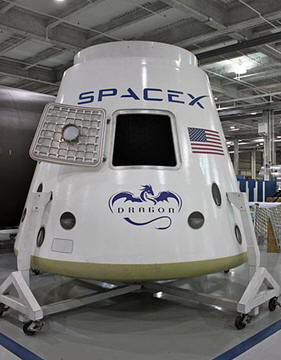|
|||||||||||
|
|
|
|||
|
By |
||||
 |
November 29, 2010 - The FAA has issued its first license
permitting the reentry to earth of a privately developed
spacecraft to the Space Exploration Technologies Corp. (SpaceX)
The Space X Dragon space capsule will launch atop their
Falcon 9 rocket on December 7 and return to earth.
While initially unmanned, the mission is a precursor to
NASA and SpaceX efforts to eventually provide commercial
trips to the International Space Station with cargo and
crew.
The FAA is responsible for regulating and licensing
An
FAA license is required for any launch or reentry, or
the operation of any launch or reentry site, as carried
out by
An
FAA license is not required for space activities the
government carries out for the government, such as most
NASA or Department of Defense launches. Once the FAA
determines a license application package is complete,
the FAA has 180 days to complete an evaluation and issue
or deny a license. |
|||
|
|
||||
|
The FAA
evaluation includes a review of public safety issues; the
activity?s environmental impact; any payload to be flown; any
national security or foreign policy concerns, and whether or not
the commercial space operator is appropriately insured. To help
facilitate in the eventual licensing process, the FAA can issue
experimental permits, rather than licenses, for the launch or
reentry of reusable suborbital rockets. Experimental permits are issued for research and development; demonstrating compliance with requirements leading to licensing; or crew training prior to obtaining a license. No person may operate a reusable suborbital rocket under a permit for carrying any property or human being for compensation or hire. |
||||


